 Welch emits immeasurable degrees of heat in working class sports fable. 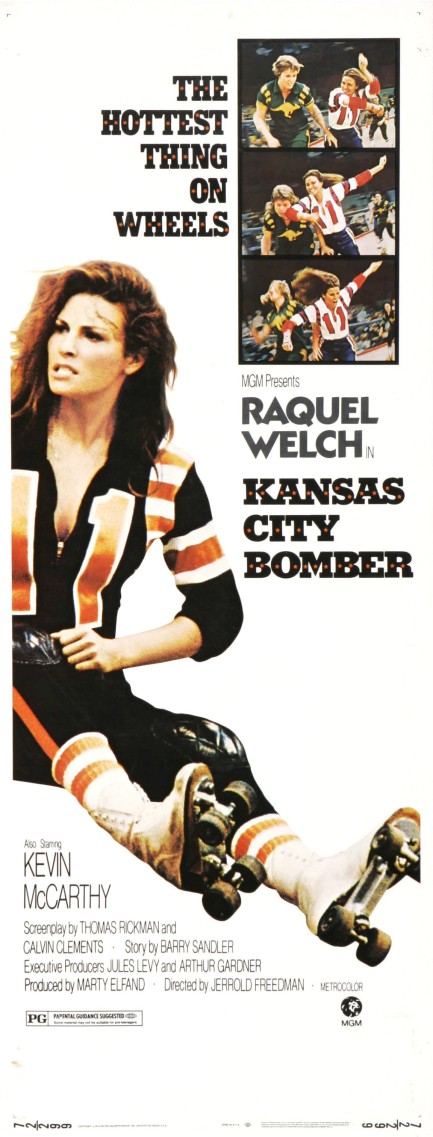
We've seen a number of Raquel Welch movies, and we appreciate her as a personality, but she wasn't a good actress. Not to speak ill of the dead and all that, but it's just true. She was unsubtle and inconsistent. She made some highly entertaining films, but an accomplished artiste she was not. Kansas City Bomber, which premiered in the U.S. today in 1972, is a drama that uses the milieu of roller derby but follows the blueprint of classic boxing flicks in which a fighter is eventually asked to take a dive in order to get ahead. Because of the gender flip involved in Welch playing this archetype, an extra layer of plot involves a usurious money man who's having his way with her in bed. But the theme of an athlete selling their soul remains familiar. Welch was a tremendous sex symbol, generally considered the hottest thing going ever since 1966's One Million Years B.C., so Hollywood, in its infinite wisdom, sometimes had her hook up with transparently undeserving men in her flicks so her male fans could scream, “Noooooo!” In this case it's too-old and too-fat team owner Kevin McCarthy. The jealousy that her preferential treatment by management causes among her co-skaters generates much of the movie's conflict, but a secondary drama is that Welch's character K.C. Carr must face one of life's most sobering realizations—that no matter how good a person you may feel (or pretend) you are, it's everyone else who gets to decide whether you're actually just an asshole. You can claim to be misunderstood, but it makes no difference at all.
In the film the other skaters think Welch is a sexual opportunist who'll do anything behind the scenes—and between the sheets—for advancement. Welch understands on some level that it's her face and body that get her to the top ranks of roller derby. She can go, “Gee! I guess he just really appreciates my talent!” all she wants, but nobody is buying it. We think that's a fine cinematic premise, but the problem with Kansas City Bomber is that it's silly and faddish. The drama is way over the top, and the introspection Welch should bring to the role doesn't resonate. Which is surprising. You'd think she'd really identify with this character—again, not to speak ill of the recently departed. We adore Welch. As a persona she was tops. As a portrayer of deep and affecting emotion... well...
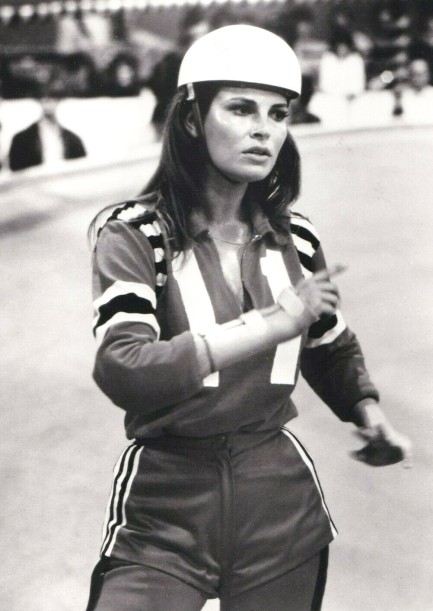 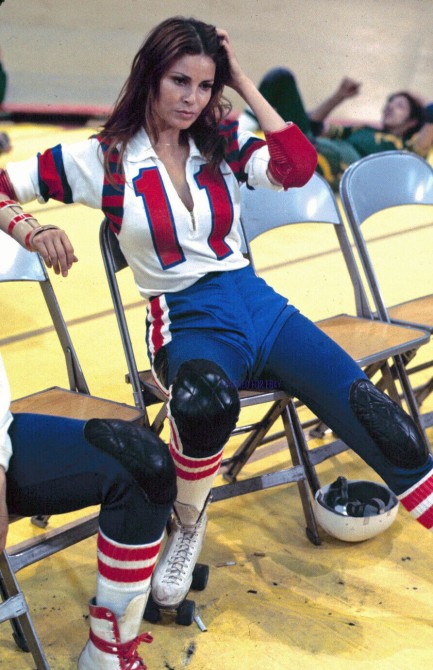 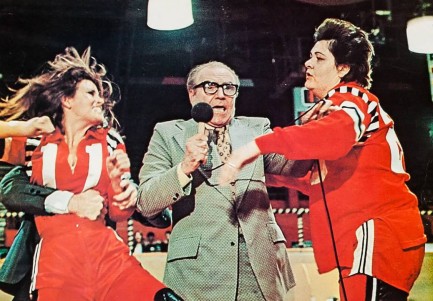 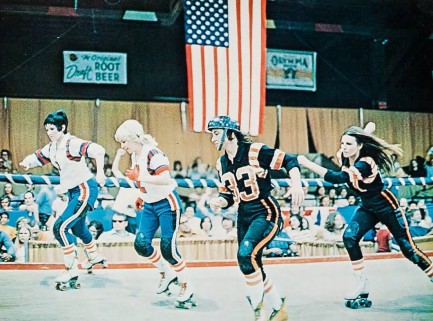 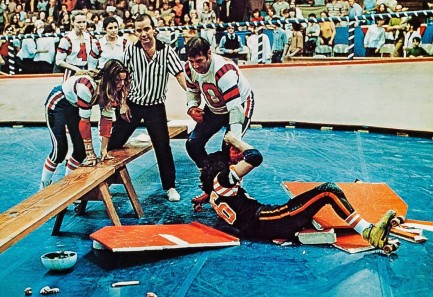 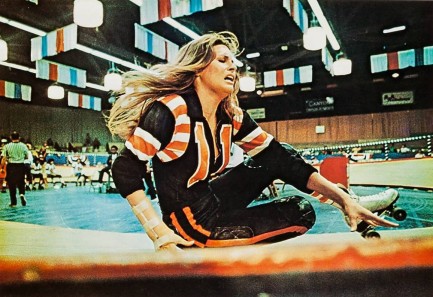 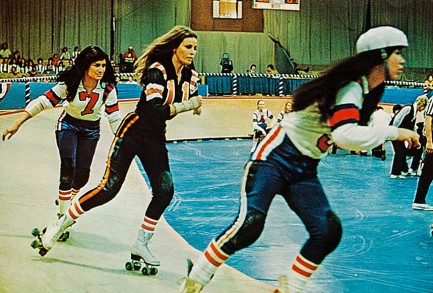 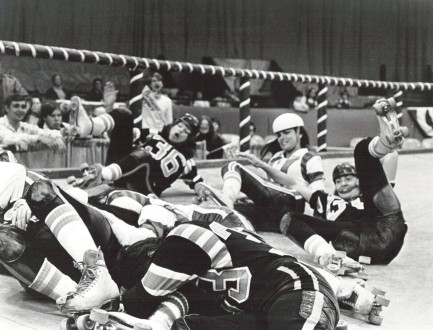 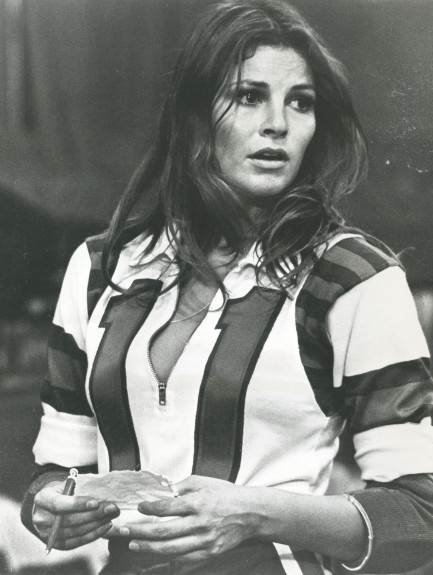 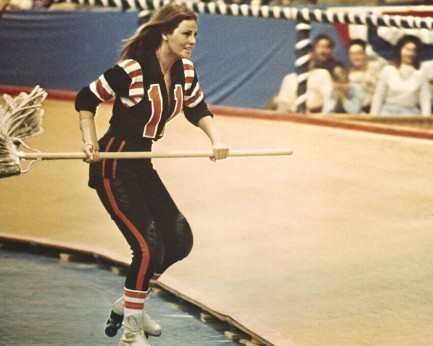 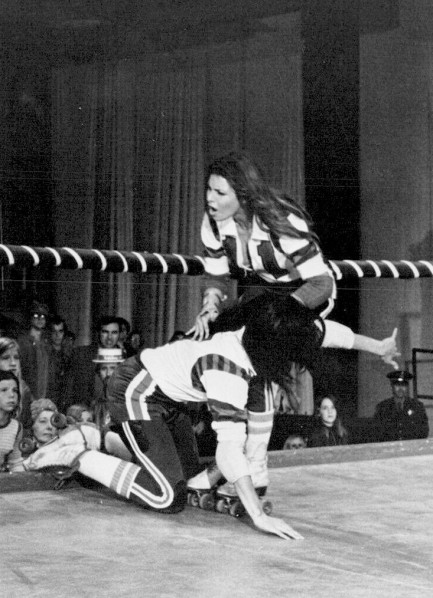 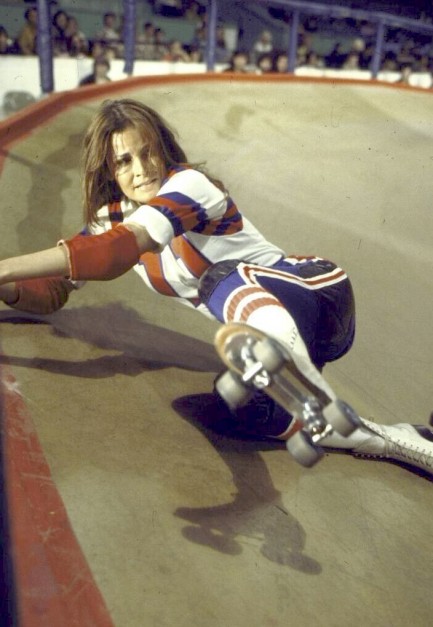 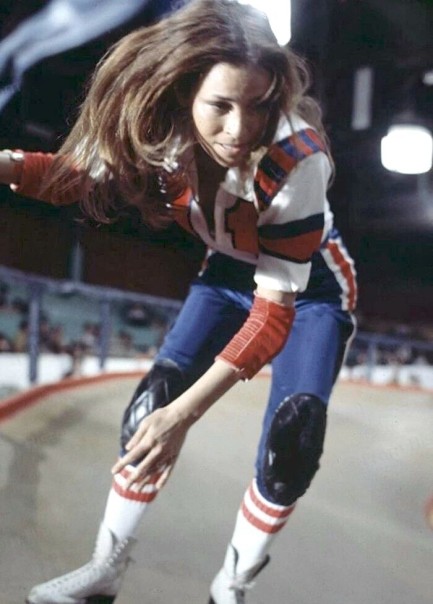 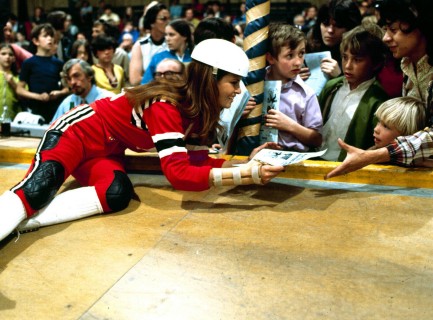 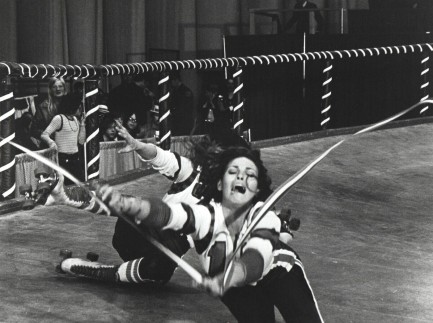 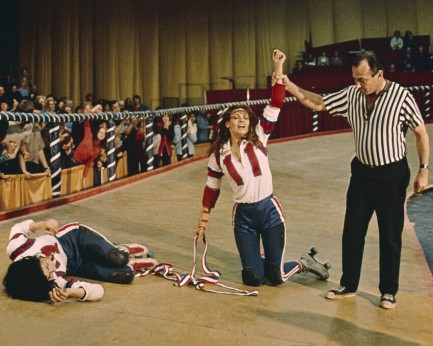 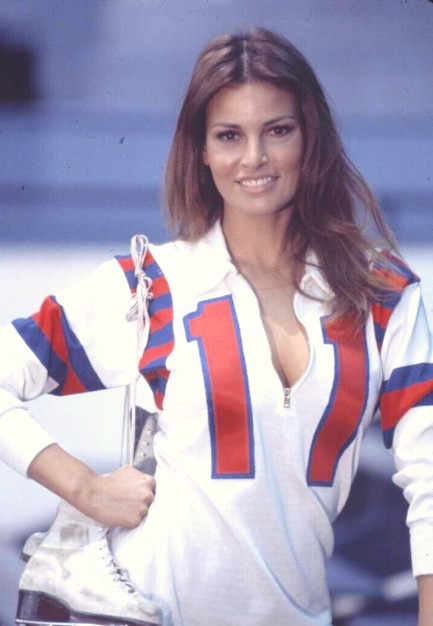
 As far as they're concerned no crime means no fun. 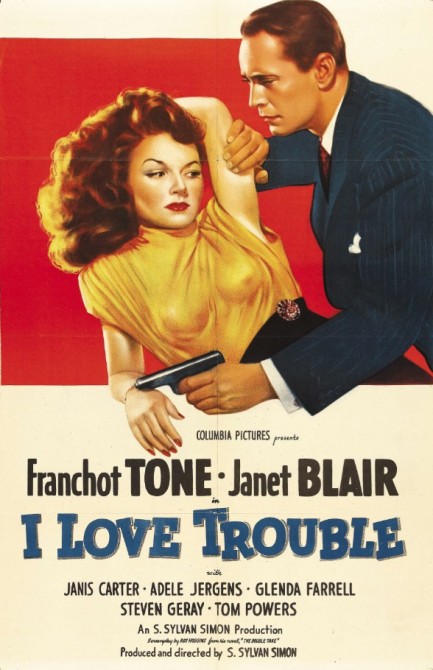
The 1994 romantic action movie I Love Trouble is unrelated to the original from 1948, for which you see a beautiful promo poster above. The first I Love Trouble is a film noir, a neglected one not often mentioned as an entry in the genre. Franchot Tone stars as a detective hired by a politician to look into his wife's background. He's been getting anonymous notes implicating her in some sort of illegality. As Tone chases clues from L.A. to Portland, his investigation uncovers blackmail and hidden identities, and of course a love interest pops up in the form of the wife's sister. With its smug private dick and regular interjections of humor the movie feels derivative of The Maltese Falcon, and its romance angle is incongruous, but Tone is cool in his detective role and carries the weight of the narrative nicely. The cast is a who's-who of stars and soon-to-be stars, including Adele Jergens, John Ireland, Tom Powers, and Raymond Burr. If that doesn't pique your interest you just don't love trouble. I Love Trouble premiered today in 1948 and went into to wide release January 15. 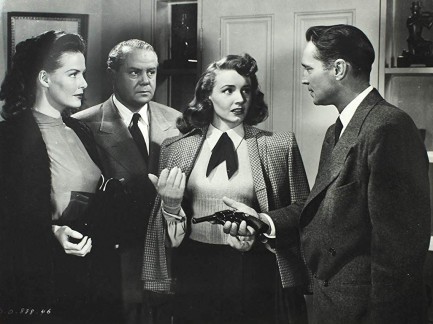 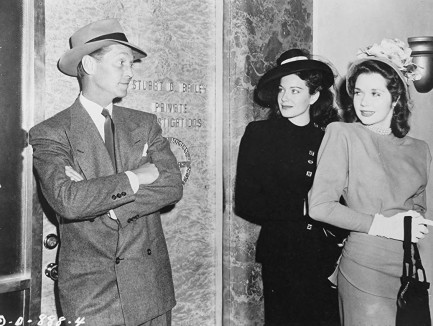 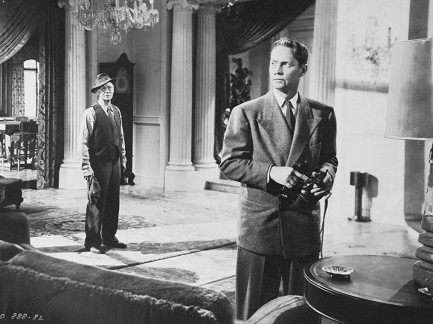 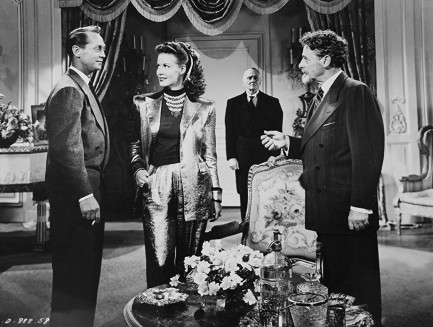 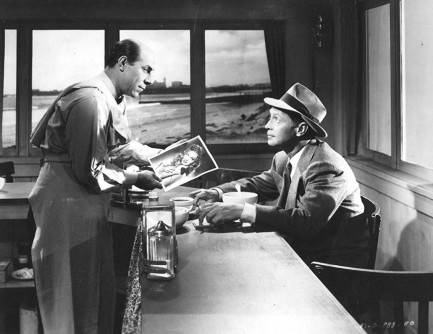 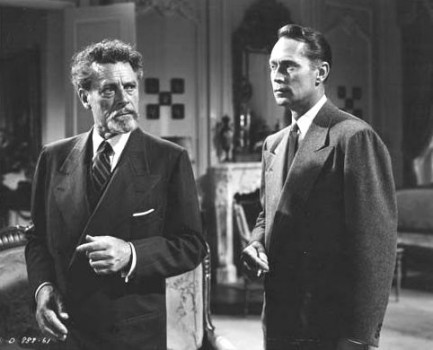 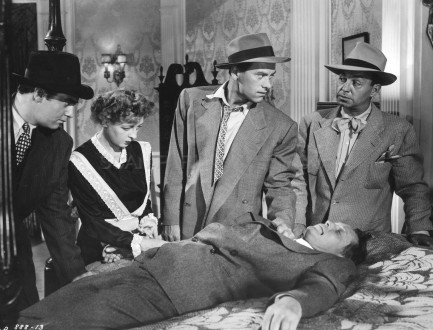 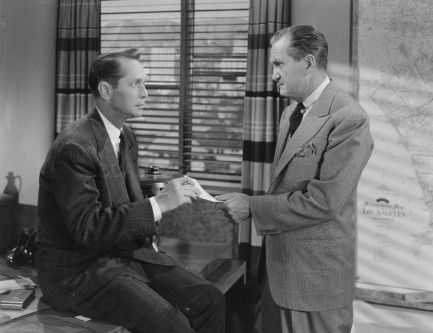 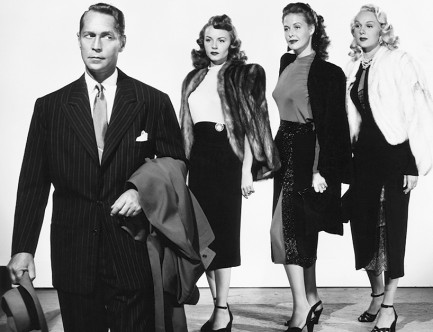
 With husbands like these who needs enemies? 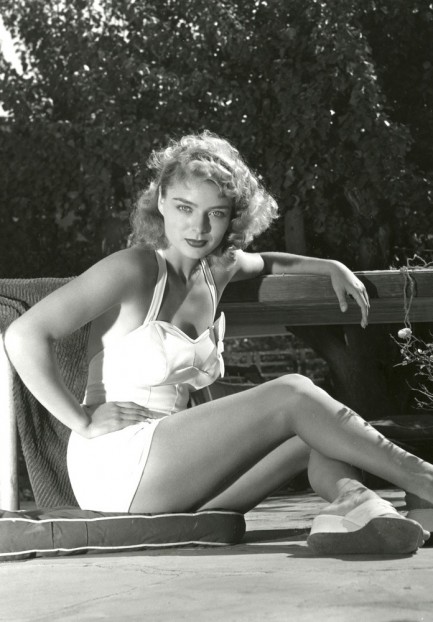
Mary Jo Tarola was born in Portland, Oregon in 1928 and by 1952 had established herself in Hollywood, first under the milquetoast moniker Linda Douglas, then under her own far more interesting name. Just two years into her career she married producer Pasquale “Pat” DiCicco. Not well known now, DiCicco was a bootlegger and pimp who became mafia boss Lucky Luciano’s lieutenant in Tinseltown. He was infamously abusive toward women—one dust-up with his first wife Thelma Todd led to her having an emergency appendectomy, and another with his second wife Gloria Vanderbilt involved him slamming her head into a wall. Tarola’s promising film career ended with her marriage to DiCicco, but at least she left behind a few choice artifacts like the above photo by photographer Ernest Bachrach. It dates from 1952 or 1953.
|
 |

The headlines that mattered yesteryear.
1939—Holiday Records Strange Fruit
American blues and jazz singer Billie Holiday records "Strange Fruit", which is considered to be the first civil rights song. It began as a poem written by Abel Meeropol, which he later set to music and performed live with his wife Laura Duncan. The song became a Holiday standard immediately after she recorded it, and it remains one of the most highly regarded pieces of music in American history. 1927—Mae West Sentenced to Jail
American actress and playwright Mae West is sentenced to ten days in jail for obscenity for the content of her play Sex. The trial occurred even though the play had run for a year and had been seen by 325,000 people. However West's considerable popularity, already based on her risque image, only increased due to the controversy. 1971—Manson Sentenced to Death
In the U.S, cult leader Charles Manson is sentenced to death for inciting the murders of Sharon Tate and several other people. Three accomplices, who had actually done the killing, were also sentenced to death, but the state of California abolished capital punishment in 1972 and neither they nor Manson were ever actually executed. 1923—Yankee Stadium Opens
In New York City, Yankee Stadium, home of Major League Baseball's New York Yankees, opens with the Yankees beating their eternal rivals the Boston Red Sox 4 to 1. The stadium, which is nicknamed The House that Ruth Built, sees the Yankees become the most successful franchise in baseball history. It is eventually replaced by a new Yankee Stadium and closes in September 2008.
|

|
|

It's easy. We have an uploader that makes it a snap. Use it to submit your art, text, header, and subhead. Your post can be funny, serious, or anything in between, as long as it's vintage pulp. You'll get a byline and experience the fleeting pride of free authorship. We'll edit your post for typos, but the rest is up to you. Click here to give us your best shot.

|
|




































































































